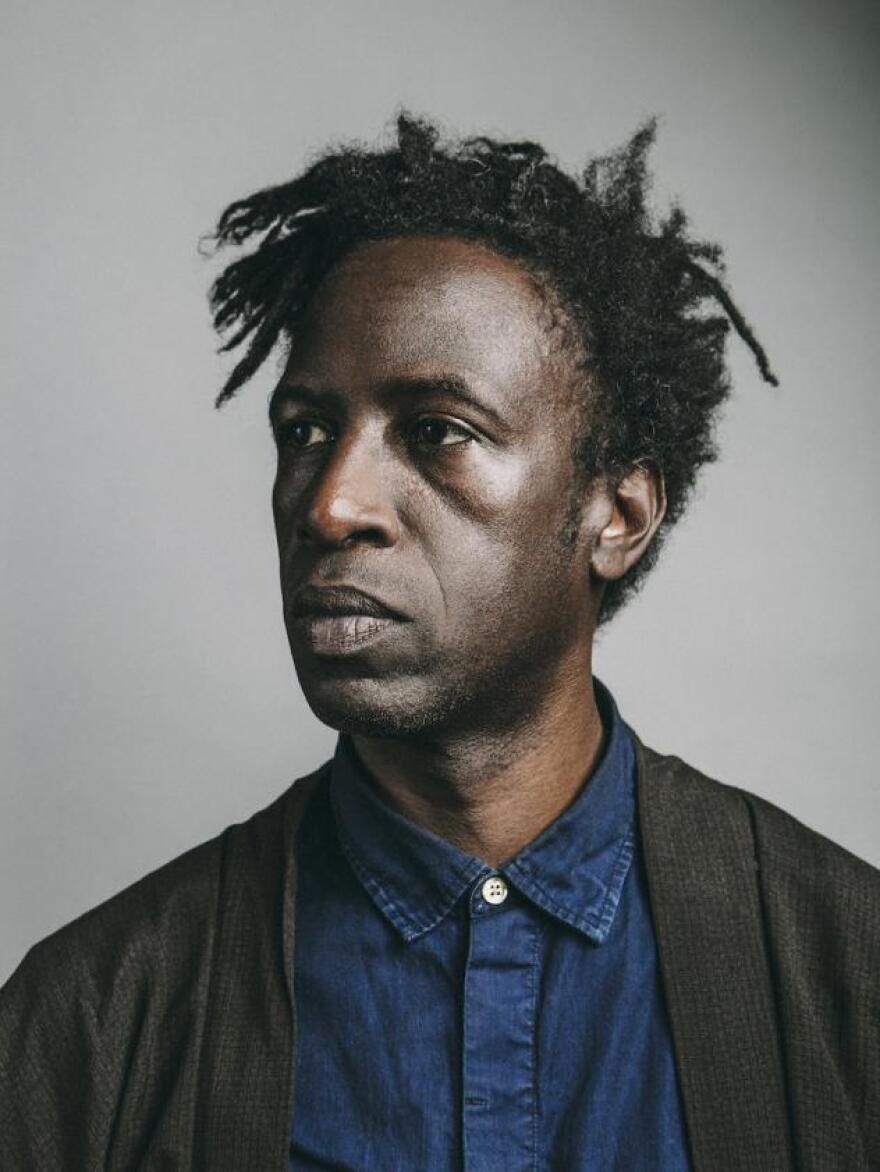Saul Williams is talented in so many areas, including music, acting, and poetry.
At the invitation of the office of the poet laureate of Clark County, Williams will hold a writing workshop and do a reading in North Las Vegas this weekend.
In the 1990s Williams was a grand slam champion at the Nuyorican Poets Café. He was the lead in the movie “Slam.” He was in the Broadway musical “Holler If Ya Hear Me.”
His most recent music recording is “Martyr Loser King” and his most recent book of poetry is titled, “US (a.)".
Discussion Highlights:
Who do you want to reach?
“I can’t say that I have a specific audience in mind. I am aware of the impact of poetry on youth and on culture in general and one of the greatest experiences of my life touring the world reciting poetry has been the realization that a lot of teachers, for example, have been able to use my writing and writing of other poets to bridge the gap between what they teach in the classroom and what excites the students."
Is your work becoming more relevant?
"That is actually something that saddens me a bit because when I first started writing poetry I did want to bridge the gap between what I felt like was being discussed openly and on the commercial stage and what was discussed at home or schools or what have you.
When I first got my first book contract and recording contract with Rick Rueben I saw it as a huge opportunity to take the things that I thought were important and not escapist to not be centered on the world stage. And as I was writing, I often felt like maybe I had some sort of power to lessen the reality of what would happen after these poems were ingested. And in fact, the exact opposite has happened, through time I’ve seen these poems gain relevancy and become more and more pertinent with the times.
Tell us about your poem “Rammellzee and the Battle of the Republic”:
Rammellzee– just so you know – was an artist, a sculptor and the best friend of a very popular painter name Jean-Michel Basquiat but Rammellzee was a linguist and played with words and language in a way that I find truly inspiring.
It is about that sense of feeling sometimes removed from the discussion without realizing you are playing a part in the discussion. That you are playing a role and that even your silence is a powerful position to take that may not be in the direction of the power that you would like to challenge.
Tell us about your poem “Amethyst Rocks”:
I wrote that poem when I was a student in the grad acting program at NYU and of course, I had a lot of frustrations on my mind at the time and one of the main questions or ideas that I had was, what if we were selling – simultaneously I was just learning about crystals and I was just starting to meditate and my birthstone is amethyst – I was carrying a piece of amethyst with me and I was imagining what if we were to replace popular drugs with actual spirit enhancing crystals or something that would really feed the spirit… as opposed to creating some kind of illusion around the idea of the spirit.
From there you have a lot of critique and commentary around social issues that were relevant then when I wrote it, which was in 1995 maybe, and now. Which of course, every single thing I’m referencing from how we’re taught African-American history or African history in American schools. How we’re not taught enough indigenous history in American schools. Our relationship to the war on drugs. Our relationship to police brutality and the criminal justice system. That poem is about all of those things and our connection to the idea of popular slogans that you see or hashtags that you see like black excellence or black girl magic.
Does it exhaust you seeing the same things happening year after year?
There is always this discussion about art versus black art and what is the artist versus the black artist free to talk about or free to explore in their creative process.
The short answer to your question is: yes. It is exhausting in the sense that from the moment our president was elected there was a sinking feeling in me that just felt like ‘wow!’ All this writing, and all this work – not my own – but all the work of all the wonderful thinkers that have come before me, the Audre Lordes and the James Baldwins, so many people who have invested their life into trying to challenge the American equation to be inclusive and to realize what’s at stake.
And to think of all those lives that were given, all those lives that were martyred and for people to be so self-interested that they would once again ignore what’s in front of their face and vote in terms of racial ideology, in terms of whether an externalized or an internalized sense of white supremacy to not challenge themselves.
Yes, it’s exhausting. It’s exhausting to have to explain racism. It’s exhausting having to explain that there is no such thing as reverse racism. It’s exhausting to have to approach these topics as if we haven’t been talking about it for our entire lives.
Courtesy: Simon and Schuster, Cover Design By Rachel Adam, Cover Illustration By Angelbert Metoyer
He's in a movie version of Shakespeare's "Midsummer Night's Dream," which is in post-production. He plays Oberon.
Saul Williams public appearances:
Saturday, September 23, 2017
Stay on Beat, Poet: Workshop and Lecture
3 to 4:30 p.m. Left of Center Gallery
2207 W. Gowan Road
Saturday, September 23, 2017
Book Signing and Reading
6 to 7:30 p.m. Pearson Community Center
1625 West Carey
From NPR: Tiny Desk Concert: Saul Williams
Saul Williams, poet, actor, and musician











